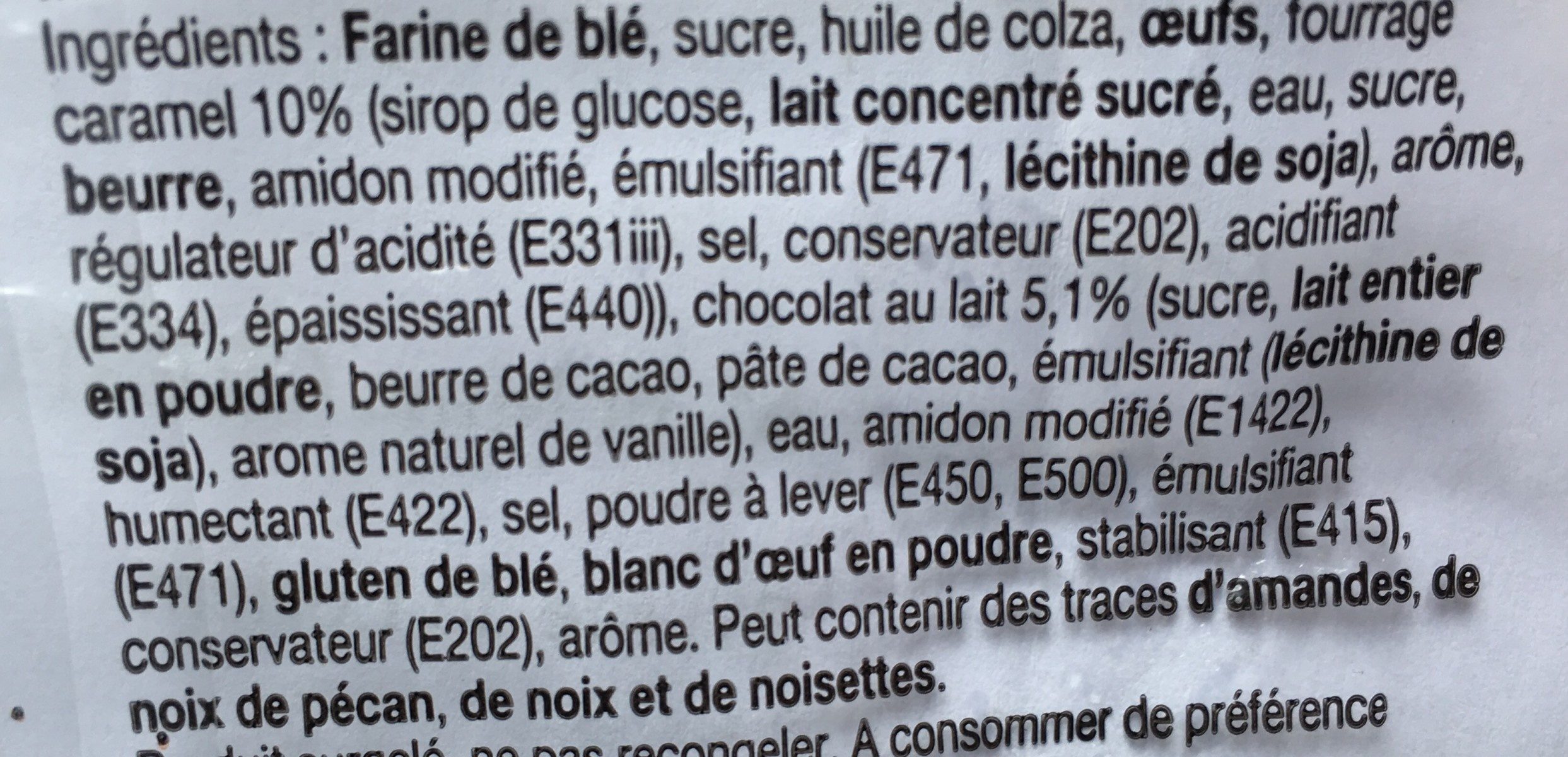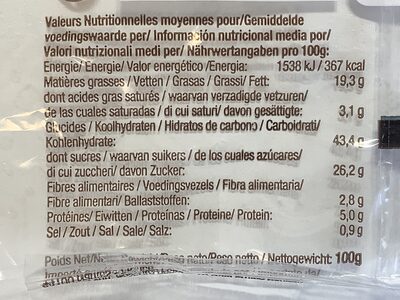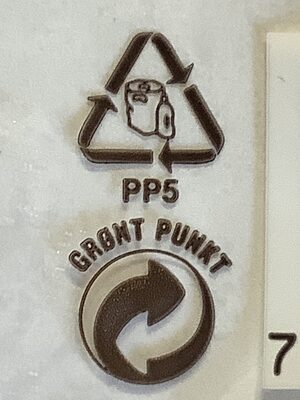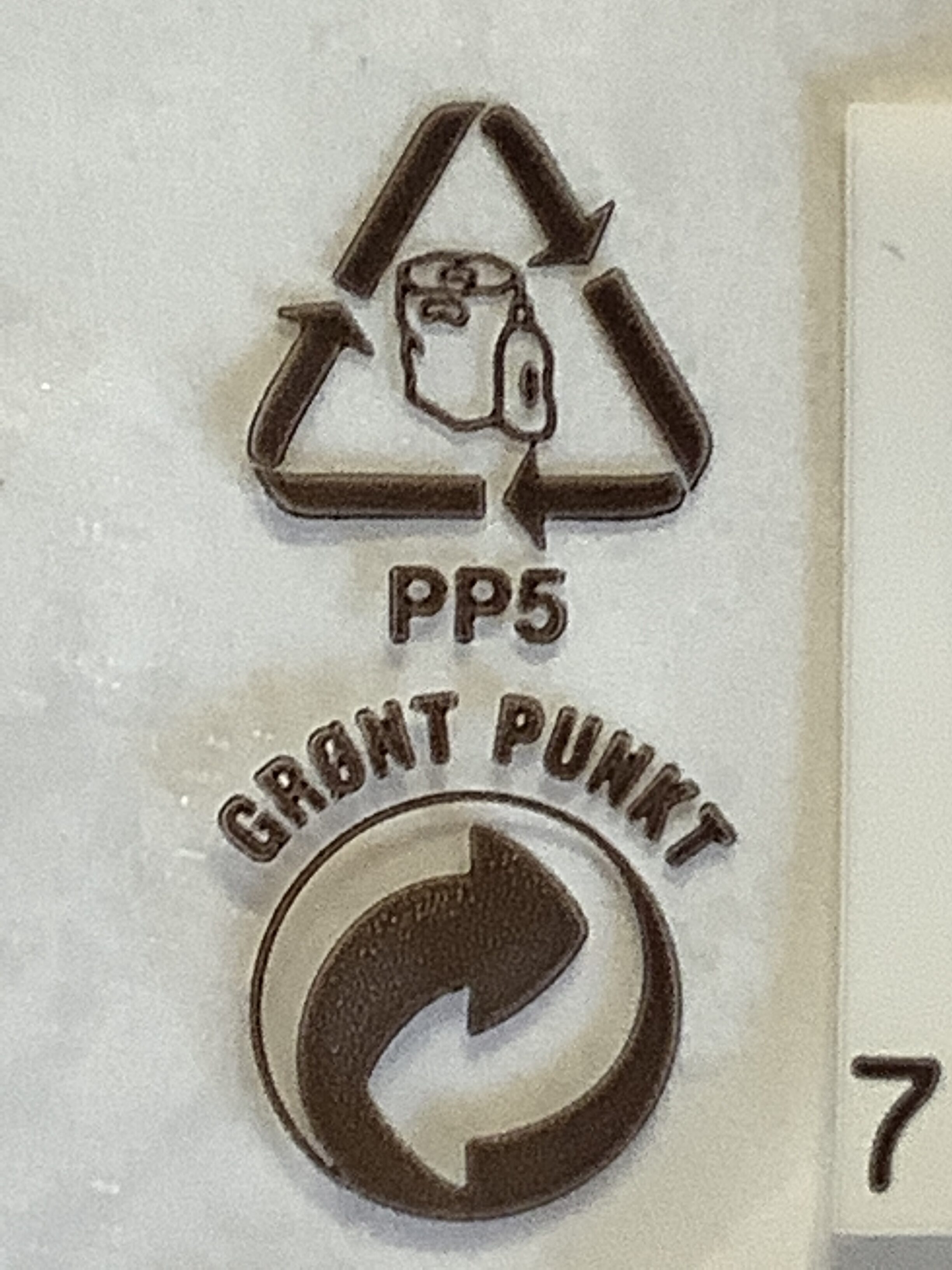Muffin Caramel - Aunt Mabel's - 100 g
This product page is not complete. You can help to complete it by editing it and adding more data from the photos we have, or by taking more photos using the app for Android or iPhone/iPad. Thank you!
×
Barcode: 7071864003752 (EAN / EAN-13)
Quantity: 100 g
Packaging: Plastique
Brands: Aunt Mabel's
Categories: Snacks, Sweet snacks, Biscuits and cakes, Cakes, Muffins
Labels, certifications, awards: No palm oil
Stores: Carrefour
Countries where sold: France
Matching with your preferences
Report a problem
Data sources
Product added on by kiliweb
Last edit of product page on by omarcoz.
Product page also edited by openfoodfacts-contributors, raphael0202, rviswana, teolemon, yuka.UzdzdVBwUllxdG95d2MwK3pDN085K2hUMk1IM1dtWHVGN1pNSUE9PQ, yuka.VDdFZUVhNVJ2dnRRdmNZLzl6RGw1ZE1sN0p1dFhtRzlCdlFJSWc9PQ, yuka.WTd3Sk1vRTloNmN3bVAwVDBFL2M1ZlZJMnFPUFhXZWNlc1pCSVE9PQ.












